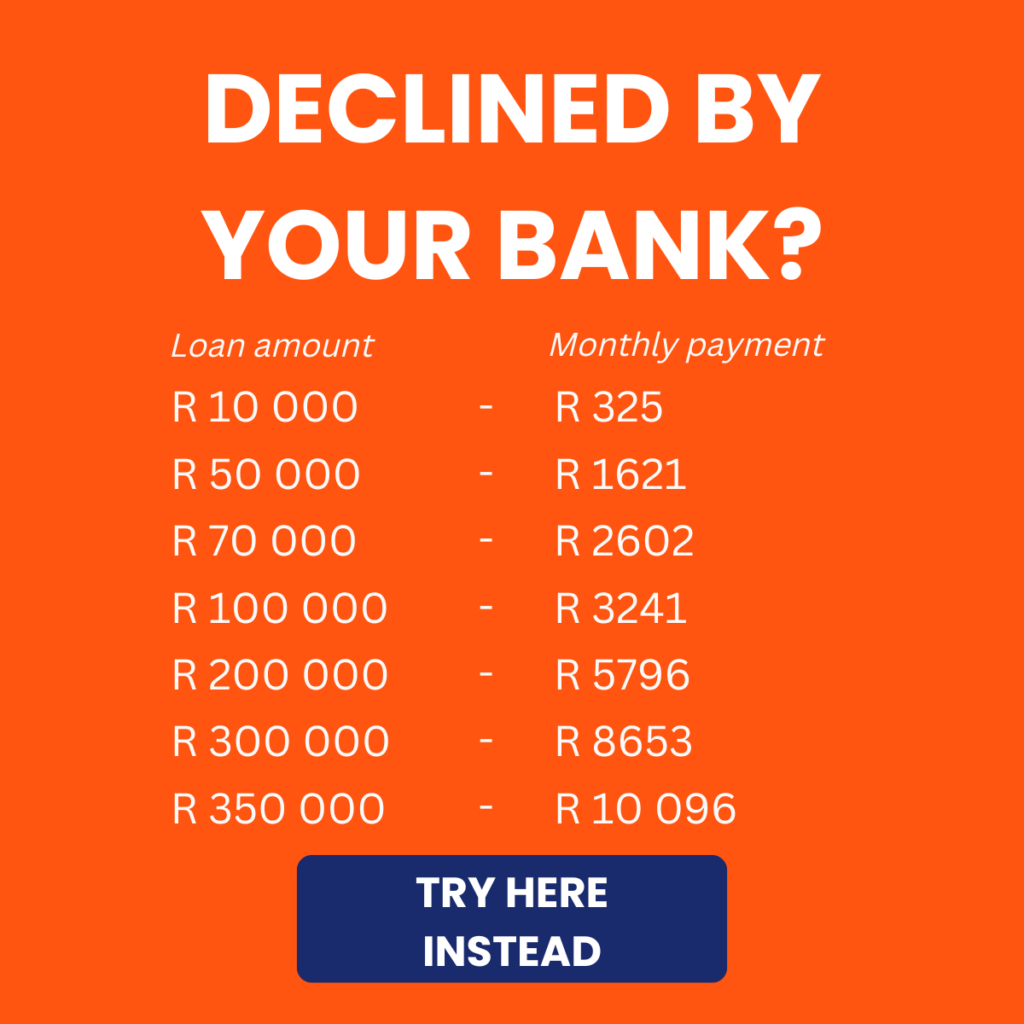
Power Your Home With Easy Solar Loans
Go Green Without Breaking the Bank – Solar Loans to the Rescue!
Arcadia Finance helps you in the search of loans from different banks and lenders. Fill in a free application and get loan offers from up to 16 lenders. We work with well-known, trusted, and NCR-licensed lenders in South Africa.
What is a Solar Loan?
A solar loan is a financing option provided by some solar installation companies to help customers cover the costs of a solar energy system. These companies often handle both installation and financing, partnering with banks, credit unions, or utility companies to facilitate the process.
Similar to personal loans, borrowers repay solar loans over time with interest. Terms, rates, and eligibility requirements vary by provider. Some installers also allow financing for additional home improvements, such as energy-efficient upgrades or roof replacements.
Financing through an installer offers convenience, as the application and repayment are managed directly by the provider. However, dealer fees can significantly increase the total cost, adding to the long-term expense.
About Arcadia Finance
Arcadia Finance simplifies your loan journey with no application fees. Choose from 16 trusted, NCR-regulated lenders for a hassle-free solution tailored to your needs.
How To Get A Loan For Solar Panels
If you’re considering financing for solar panels, there are several loan options available. Below is an overview of the most common ways to secure funding for solar panel installations:

Personal Loans
A personal loan provides funding for your solar panel system upfront, with the lender paying the full cost. You then repay the lender in monthly instalments over an agreed period. These loans can be secured or unsecured, and their terms, interest rates, and fees vary.
- Secured Personal Loans: These loans require collateral, such as your home, vehicle, or the solar panels themselves. The collateral reduces the lender’s risk and may result in lower interest rates.
- Unsecured Personal Loans: These loans do not require collateral but often come with higher interest rates and stricter eligibility criteria.

Installer Financing
Many solar companies offer financing options directly through their services. This type of financing operates similarly to personal loans, requiring you to repay the loan in instalments over time. However, the loan terms, fees, and interest rates differ by installer.
- Some installers may allow additional financing for energy-efficient home upgrades alongside the solar panel loan.
- Be cautious with financing options that require interest-only payments for the first year. While this may result in lower initial payments, it could lead to higher payments in subsequent years once tax incentives and rebates are factored in.
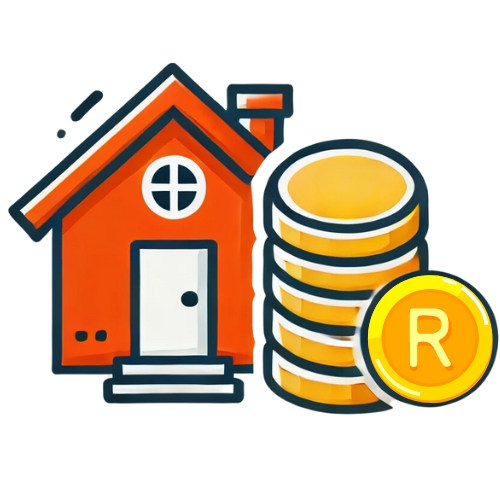
Home Equity Loans
A home equity loan enables you to borrow against the equity in your property, which is the difference between the home’s current market value and the remaining mortgage balance.
- These loans typically offer lower interest rates compared to credit cards or unsecured personal loans.
- Interest rates are usually fixed, which provides predictable monthly repayments.
- However, failure to keep up with repayments could put your home at risk.
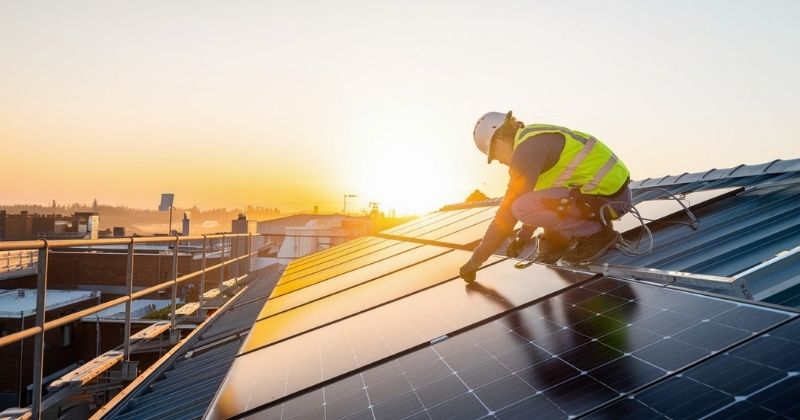
Solar Financing Options from South African Banks
With the ongoing challenges posed by Eskom’s load shedding, many South Africans are turning to solar power for dependable and cost-effective energy solutions. Major banks in the country have responded by introducing solar financing options tailored to these needs.
Nedbank
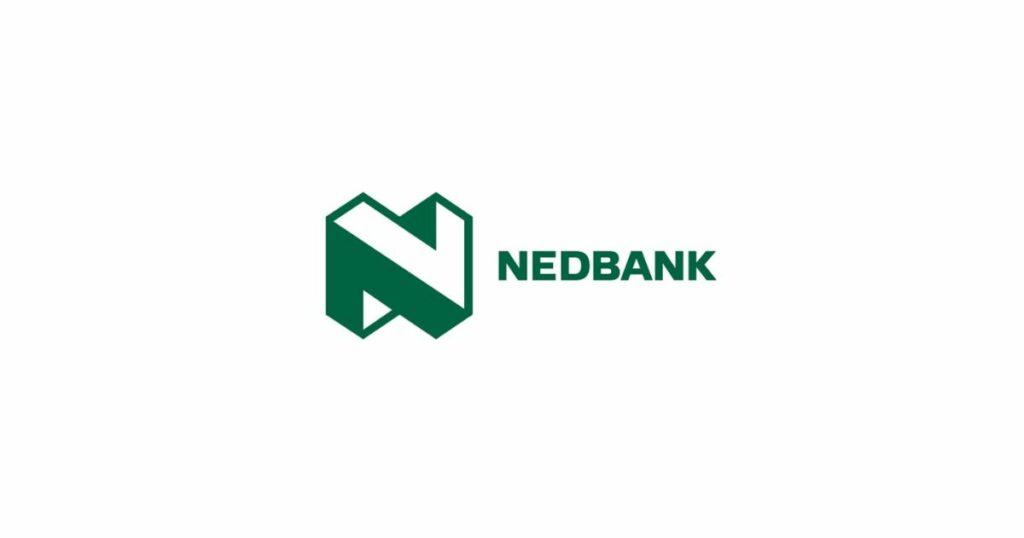
Nedbank provides comprehensive solar financing options through its Avo Solar platform, aiming to make sustainable energy solutions more accessible. These packages include solar power systems along with backup batteries, all offered at competitive rates. Installation is carried out by suppliers and installers approved by Nedbank, ensuring quality and reliability. Each package comes with a 10-year warranty and a certificate of compliance, giving customers peace of mind. The platform is designed to streamline the process of transitioning to greener energy, making it more convenient for homeowners.
First National Bank (FNB)

FNB has introduced a variety of credit options aimed at supporting homeowners in adopting solar energy solutions. Borrowers can secure funding of up to 15% of their property’s value to cover installation costs.
Through its mobile app, FNB offers the “Nav Energy” feature, which provides users with guidance and access to pre-vetted energy solutions, ensuring that customers can make informed choices. The solar loan is structured to be part of the customer’s existing bond, simplifying repayment by consolidating it into a single loan aligned with their credit profile.
For those seeking smaller-scale energy solutions, FNB also offers financing options for UPS and inverter systems, starting from R149 per month over a 24-month period. To maintain high standards, the bank collaborates with pre-approved suppliers, reducing the risks associated with unreliable service providers.
The steps to access FNB Solar Financing are:
- Obtain a detailed quote from a trusted supplier.
- Apply for an FNB personal loan, ensuring the requested amount does not exceed R300,000 and aligns with the invoice’s value.
- Once the loan is disbursed, pay the supplier’s deposit.
- Activate the benefit through the FNB app by submitting all necessary documentation.
The loan must be activated within two months of being disbursed, and the majority of the funds must be allocated specifically to solar-related expenses. These expenses can include solar panels, batteries, inverters, and installation costs. A reduced interest rate will only be applied once all necessary steps have been completed and verified, a process that can take up to ten business days.
To qualify for FNB’s solar loan benefits, the loan amount must not exceed R300,000, and at least 90% of the loan must be directed towards solar-related costs. Additionally, the benefit must be activated within two months of the loan being paid out. Applicants are also required not to have an active solar credit product with another bank.
Standard Bank
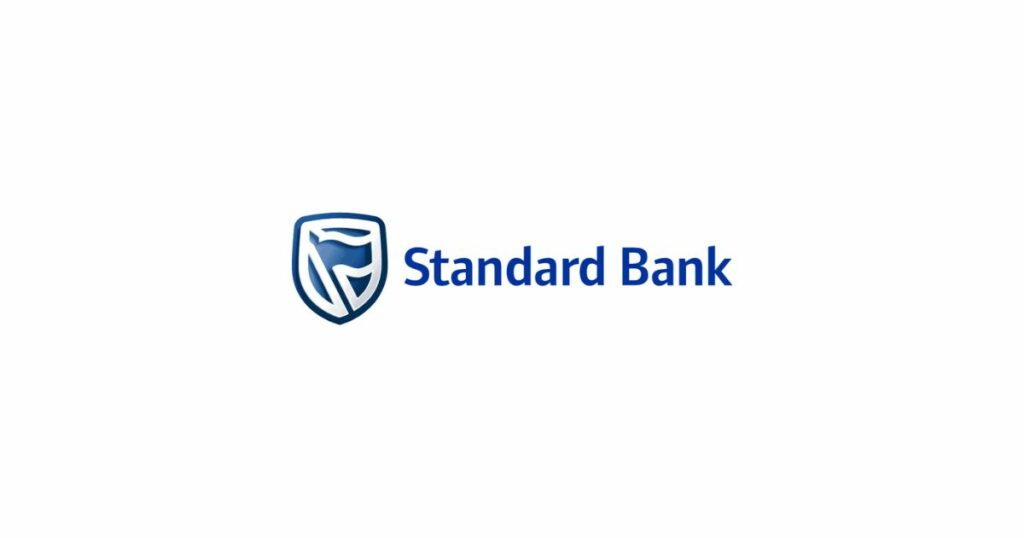
Standard Bank participates in the government-supported Energy Bounce-Back Loan Guarantee Scheme. Through its LookSee Solar Scheme, the bank provides loans designed to cover the costs of purchasing and installing solar power systems. This scheme is accessible to households regardless of their banking provider, offering financing for complete solar installations. Borrowers can access funding of up to R300,000, repayable over a five-year period.
Discovery Bank

Discovery Bank has established a partnership with Rubicon, a provider of solar solutions. Through an online calculator, clients can receive instant quotes customised to their specific energy requirements. Additionally, energy advisors are on hand to assist in choosing the most suitable solar options. The bank offers flexible financing through a dedicated solar budget facility, featuring interest rates starting at prime minus 2%. Repayment terms are available for up to 72 months, providing clients with manageable payment solutions.
Absa
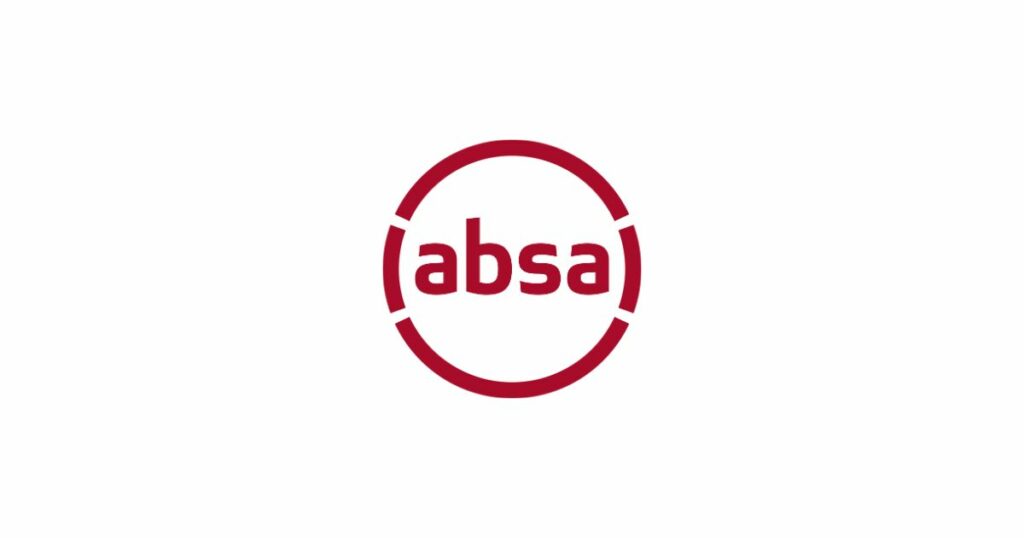
Absa provides homeowners with various financing options for installing solar panels and addressing load-shedding challenges. Detailed information, including a guide to selecting a suitable installer, is available on the Absa website.
Existing Absa home loan customers can explore the following financing options:
- Further Advance: If the market value of the property has increased, and there is equity available, the homeowner can apply for a further advance. This entails registering an additional bond against the property at the deeds office.
- ReAdvance Option: Should the homeowner have reduced the original loan balance, they may apply for the difference between the outstanding balance and the original loan amount. Unlike a further advance, this option does not require additional bond registration.
- Switching to Absa: Homeowners can transfer their existing home loan to Absa and apply for a higher loan amount if equity is available. Any surplus funds are paid directly to the homeowner. Absa supports this process by offering a 50% discount on bond registration fees (including VAT) and covering up to R20 000 in additional bond registration costs.
- MultiPlan Feature: Customers can structure any additional loan amounts into a secondary account using Absa’s MultiPlan feature. This allows the new loan to have its own repayment term and interest rate. Borrowers can save on interest by repaying the additional amount over a shorter duration.
Investec
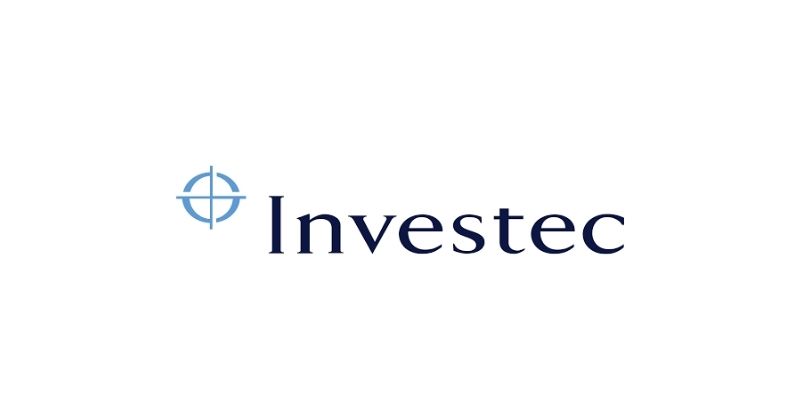
Investec offers private banking clients flexible financing options for sustainable energy, technology, and water solutions. In 2022, the bank introduced a standalone funding product aimed at assisting clients with solar or water installations for their homes or businesses.
The offering includes financing for solar panels, battery storage, and water backup systems up to R500 000, with tailored funding available for higher amounts. Key features include, no initiation fees, interest rates starting from prime, and flexible repayment terms of up to 60 months.
Clients do not need to have their property bonded to Investec and may either select their own service providers or use Investec’s recommended solutions.
Additionally, clients have the option to utilise their existing home loan facilities to finance the installation of solar or water systems.
Comparison of Solar Financing Options
| Bank | Loan Amount | Interest Rate | Repayment Term | Unique Benefits |
|---|---|---|---|---|
| Nedbank | Based on Avo Solar Packages | Not specified | Not specified | Includes solar systems and backup batteries, 10-year warranty, and certified installers for reliability. |
| FNB | Up to 15% of property value; up to R300,000 | Reduced rates if 90% is solar-related | Integrated with existing bond | Pre-vetted suppliers; access through the FNB app; financing for UPS and inverter systems starting at R149/month. |
| Standard Bank | Up to R300,000 | Not specified | Up to 5 years | Accessible through the Energy Bounce-Back Loan Guarantee Scheme, regardless of banking provider. |
| Discovery Bank | Customised via online calculator | Prime minus 2% | Up to 72 months | Flexible repayment terms, expert energy advisors, and partnership with Rubicon for tailored solutions. |
| Absa | Varies by equity or home value | Not specified | Flexible (via MultiPlan) | 50% discount on bond registration fees; options for further advance, ReAdvance, and MultiPlan for structured repayments. |
| Investec | Up to R500,000 or bespoke financing | Prime (starting rate) | Up to 60 months | No initiation fees; clients can use their own providers or Investec’s curated options; non-bonded properties accepted. |
Pros and Cons of Solar Loans
Pros
- Affordable Access to Renewable Energy: Solar loans enable homeowners to finance the installation of solar panels without requiring significant upfront costs, making renewable energy more accessible.
- Flexible Financing Options: Various loan types—such as personal loans, home equity loans, and installer financing—allow borrowers to choose terms that align with their financial situation and needs.
- Energy Savings: Over time, solar installations can significantly reduce electricity bills, offsetting the loan repayments and potentially leading to long-term financial savings.
- Increased Property Value: Solar panels can enhance the value of a property, making it a worthwhile investment for homeowners.
- Tax Incentives and Rebates: Some financing options integrate available tax incentives or rebates, helping reduce the overall cost of the system.
- Convenience: Financing through solar installers often streamlines the application and repayment process, as it is handled directly by the provider.
Cons
- Higher Long-Term Costs: Interest charges and dealer fees can substantially increase the total repayment amount, making solar loans more expensive over time.
- Potential Fees and Penalties: Some loans may include hidden costs, such as early repayment penalties or dealer fees, which can add thousands of rands to the overall cost.
- Eligibility Requirements: Borrowers may face stringent credit checks and financial criteria to qualify for some solar loan options, especially unsecured personal loans.
- Risk with Secured Loans: Secured loans, such as home equity loans, carry the risk of losing the collateral (e.g., the property) if repayments are not maintained.
- Complex Repayment Structures: Certain loans, particularly those with interest-only payments during the initial period, can lead to higher monthly payments later, creating financial strain.
- Limited Providers: Some banks and installers restrict borrowers to pre-approved suppliers, limiting the choice of solar equipment and installation services.
Conclusion
Solar loans have emerged as a valuable financial tool for South African homeowners seeking to transition to renewable energy solutions like solar panels. With flexible financing options available from major banks and solar installers, these loans make clean energy more accessible and practical, even for those with limited upfront capital. However, it is crucial to weigh the long-term costs, including interest rates and potential fees, against the significant benefits, such as energy savings and increased property value. By carefully evaluating options and understanding the associated terms, homeowners can make informed decisions that align with their financial goals and energy needs.
Frequently Asked Questions
A solar loan is a financing option that helps homeowners cover the cost of installing solar energy systems. It allows borrowers to repay the cost over time, typically with interest, rather than paying upfront.
Yes, some banks, like Standard Bank, offer solar loans to customers regardless of whether they have an existing bond or banking relationship with them.
While the loan itself doesn’t offer tax benefits, many solar systems qualify for rebates or incentives, which can reduce the overall cost of the system. Check with your provider or bank for eligibility.
For secured loans, such as home equity loans, the collateral (e.g., your property) could be at risk. For unsecured loans, defaulting could impact your credit score and financial standing.
Installer financing is convenient as it is directly linked to the installation process, but it may come with higher dealer fees. Bank loans, on the other hand, often offer more competitive interest rates and flexible terms. Compare costs, terms, and benefits before making a decision.


